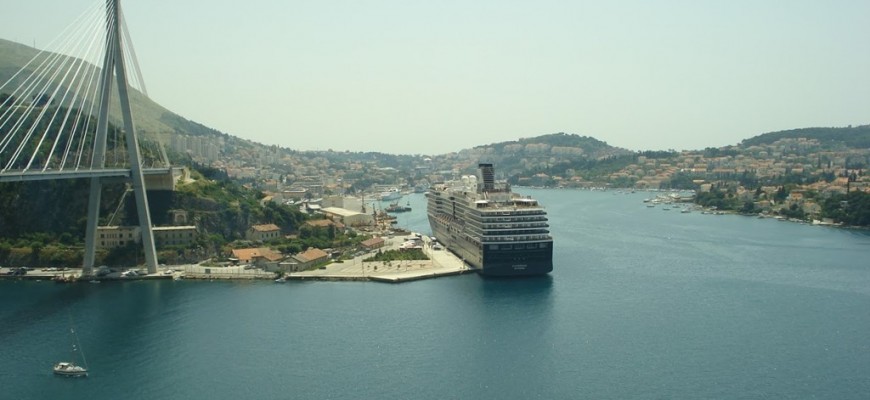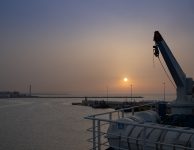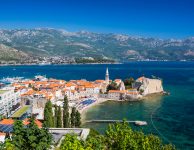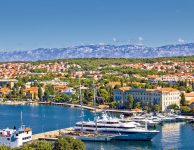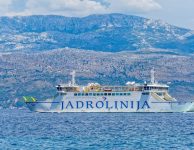DUBROVNIK – Cruise ships will be powered up in Gruž
It is about ensuring the service of connecting cruisers to the land power grid so that cruisers, while in port, can completely turn off all generators
Ecological approach or science fiction: Cruise ships will be connected to electricity in Gruž, but where will the voltage come from? – reports dubrovacki.slobodnadalmacija.hr
Despite the corona, the cruise industry operates as if there was no crisis at all, nor is it threatened by the danger of recession. In 2018, cruise ships welcomed 28.5 million tourists, and during the corona crisis, the cruise ship fleet was quite renewed: the old ships were sent to the slaughterhouse, and the new, far more modern floating hotels are technologically very advanced and use self-sustaining internal systems.
But the huge profits of the owners and the harbors that host them also have a downside, because cruise ships really harm the environment. Venice, for example, with 6 million passengers and about five times more cruise ships than Dubrovnik, records air pollution of 300,000 tons of soot microparticles per year due to the ships carrying generators for the production of electricity for lighting, air conditioning and the like.
ECOLOGY AND LAND CONNECTION
Although the port of Gruž and the anchorage of Lokrum have a grateful rose of winds that disperse dangerous particles towards the open sea, this does not prevent the Dubrovnik Port Authority from already working on an ecological solution project as required by the increasingly strict EU environmental protection standards.
It is about ensuring the service of connecting cruisers to the land power grid so that cruisers, while in port, completely turn off all generators, which results not only in cleaner seas and the environment in general, but also in significantly higher incomes. Although cruise ships are not yet required to have a connection to the land network, in Europe, Hamburg in Germany and Kristiansand in Norway already offer an electrical connection service, but not many ships with this option use it.
Experts for cruise ships claim that their passengers make up only 2 percent of tourists, and air passengers as much as 60 percent, the global trend of preserving the sea and the environment is increasingly pronounced. The director of the Dubrovnik Port Authority, Blaž Pezo, says about the solution to the problem of cruisers, who spend as much as a third of their cruising time in port:
– For years we have been developing the project of Coastal power supply of large ships with electricity during docking in the port of Gruž, and we have done a Feasibility Study of the project and, in cooperation with HEP ODS and HOPS, an Elaboration of the optimal technical solution for connection to the electrical grid.
Financing from EU funds
Although the value of the preparatory work is estimated at around 100 million kuna, and the equipment for connecting ships to the land electrical network and other port installations at another 70 million kuna, we place the project in the same level of importance as the Pelješko Bridge in terms of the well-being of our region. We cannot finance such large sums on our own, and by the end of the year we will submit the project for CEF-financing from EU-funds, and with the help of the parent Ministry of the Sea for the preparation of complete project documentation.
CEF (Connecting Europe Facility) is a key European instrument for connecting and promoting growth, employment and competitiveness, it supports the development of highly effective and sustainable trans-European networks of transport, energy and digital services, facilitates travel, increases Europe’s energy security and, with cross-border cooperation, enables wider use renewable sources.
Ecology is a priority, but our city network does not provide enough power to supply even one ship! With non-refundable EU funds, it is possible to bring this infrastructure to Dubrovnik not only for cruise ships, but also for a city that does not yet have a completely stable electricity supply – says Pezo and adds:
– The Pelješki bridge was also a prerequisite for the project, and now we can “pull” sufficiently strong electricity from the Neretva valley, where the nearest large substation is. We already have two measuring stations for monitoring air quality and the movement of particles potentially dangerous to health, which is in accordance with EU directives. The data is updated every 60 minutes and is available on our website. Due to the rose of winds, all data are within the limit, and we look for the cause when they get close to it.
Environmental Protection
With the available EU grants, this price is acceptable, and the project ensures electricity supply and protection of a clean blue-green environment in the heart of Europe. This is a huge benefit, it guarantees us ecological self-sustainability, and thus we solve the problem of overloading the city’s electricity grid, to which new hotels, residential and business facilities and other users are increasingly connected due to large-scale construction. I remind you that the projects have been done since before the corona virus and they are a benefit for everyone.
We have already obtained a connection permit from HEP, and CEF offers us financial support through innovative financial instruments such as guarantees and project bonds in addition to grants. These instruments create significant leverage in the use of the EU budget and act as a catalyst for attracting new funds from the private and public sector – Pezo points out.
The winners are all except the citizens and the environment
Deutsche Welle points out that “cruisers cannot simply turn off all engines even in port, because generators are necessary for air conditioning, ventilation, lighting and everything necessary for the life of the thousands of passengers on board. In European coastal waters, ships are not allowed to sail on fuel oil, especially they are not allowed to use it in the port, but “ordinary” diesel, which is “not much better”.
They point out that the vast majority of about 300 cruisers still sail on the dirtiest fuel in general, fuel oil which is actually a residue of the oil refining process and is much dirtier than diesel because it contains a lot of sulfur and heavy metals, dust and carbon dioxide. Therefore, “oil companies are happy to find a buyer for fuel oil, and shipowners are even happier that their fuel is cheap, and everyone benefits – except for the environment and the residents of cities along the coast.”
source: otoci.eu


